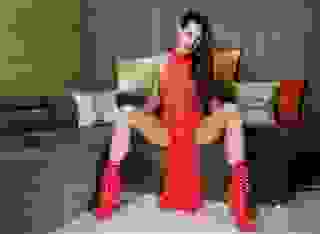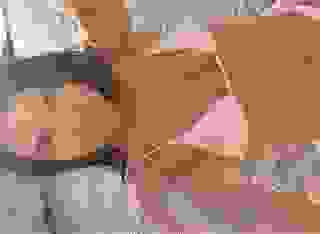- Gay Male
- The Forever Man
- Page 7
Note: You can change font size, font face, and turn on dark mode by clicking the "A" icon tab in the Story Info Box.
You can temporarily switch back to a Classic Literotica® experience during our ongoing public Beta testing. Please consider leaving feedback on issues you experience or suggest improvements.
Click hereAs the old man was drifting away I felt myself losing the security and safety I had found with him in that tidy, clean, warm house. I suddenly felt I was facing the unknown, losing my bit of forever, and I felt helpless and lonely.
* * * *
The next day the old man felt well. There were days he was almost his old self again, and when he was, he wanted to go out. He had the chalk in his hand and was shuffling off up the road before I had even locked the front door. I caught up with him and took his arm and wrapped it about mine so I could steady him. His breath was labored by the time we reached the main road, and he had to stop for a while.
"I think I can make it to Oxford Street," he said with a smile and a small laugh. "That's where Shawn and I kissed in that gay rights parade. It seemed so dangerous. I think we both were shaking when we did it, but then we did it again, and all around us men were kissing each other and we even kissed friends and strangers. There on the street."
I had heard the story often and to me it was a lifetime ago that it happened, but coming from a small town I could understand what it must have felt like to them that first time.
We continued on to Oxford Street and on to the spot.
"Oh," he sighed and stopped. I looked down and there it was, almost worn away by passing feet—Forever. "You . . ." I started to say, confused, and turning to him.
He shook his head, and I realized now I looked again that it was not exactly like his "Forever."
"It's all right," I said, hugging him, hating to think what he felt to see a stranger's writing in the place that meant so much to him.
"No, no, Corey," he muttered pushing me off. There were tears in his eyes. "It's all right. It's there, 'Forever,' that is what matters. It's there. Someone understands." He stood, rocking gently back and forth, looking down at the word written on the pavement.
After a while he took my hand and leaned on me and we turned away. We walked home in silence, both with our own thoughts. Me wondering what sort of cruel game someone was playing with the man I loved so much. And him . . . he seemed to be happy. Knowing the word was there in his favorite spot was enough for him. Something I didn't really understand.
When we got home he headed for his room and I helped him back into his pajamas and into bed. I climbed in behind him and made gentle love to him, to a man so easily pleased and trusting. To a man who could see only good in someone else writing "Forever" on the pavement, an act that had been solely his for decades. To a man who had welcomed me into his life and house without ever questioning me, and who had given me a home. I thought of Allen as I moved inside him, feeling guilty for doing so, and the old man moaned and sighed and arched his back and murmured "Corey. Oh yes, Oh . . ."
* * * *
Sandra Martin looked at Allen with some uncertainty. "Your piece on Australia's forgotten literary icons was good, but . . ."
"I'm sorry, I know I didn't manage to get the human interest story about Martell's grave visitor that would have been more popular. But this . . . I really want to see the time capsule being opened and to know what is in there. This is a public event, these people wrote what they wanted Australians to know about their experiences now, thirty years later. And it's not just about Martell, but every one of them. Something like this is an historical event as well as perhaps a great human-interest story. Each of these people was a former service man or woman who served their country. And this will interest my American readers too."
"OK," Sandra said with a half-smile. "You are obviously keen, so you can go. But I am still sending Lisa along for the woman's angle, and Gavin has been leading this story the last few weeks."
Allen knew he had let Sandra down on the Martell grave story she had handed him, and he didn't blame her for only sending him along as an extra. It was insurance the paper didn't miss something if he blew it—again. But Gavin could only be looking in one place at a time, and his job was following the survivors. They already had copies of the work two of them had put in the capsule. The third survivor had included photos, and they wouldn't be seen till it was opened.
"Corey, Corey," Allen muttered under his breath as he left Sandra's cubicle. The phone call from the Forever Man's young minder had come as a complete shock to him and he was still reeling and floating on air, wondering if this would give him another chance to be with Corey—or maybe it meant the Forever Man had changed his mind and was willing to see his story in print.
The opening of the time capsule was to be carried out in the main chamber of the New South Wales parliament building, a suitably historic venue for a historic event. And the capsule had been buried in the grounds of the building, so it was an obvious choice for that reason also and provided a backdrop for great photos. The three surviving contributors to the capsule had been invited, along with the media and a few relatives of the dead contributors.
The Morning Herald had been printing small pieces about the event all week and had done a spread in the weekend supplement the Saturday before. Which was what Corey had seen. The Morning Herald was also printing a spread on the actual opening this Saturday and was ready to print a selection of the capsule's contents on the following Saturday in a special commemorative insert.
The reason Allen was there was that after the opening the media would get a chance to briefly look at all the contents before they were whisked away to be preserved and copied.
"Allen. I need to know if it's safe for him to read what Martell put in, he's been getting more and more excited and worked up about this capsule and what Shawn put in it since he saw the paper last Saturday, and I am worried about him. He's convinced that Shawn will have produced a masterpiece, but Shawn was ill and had not been writing well and could be thoughtless at times. So, I am worried. Can you get me a copy of what he wrote before it's in the paper? So I can know?"
"I will do what I can, Corey," Allen replied, his heart beating wildly at this unexpected chance to get back in touch with the young man he knew he loved. However foolish that was. "But I can't promise anything. This is not my assignment, but I will try. I should be able to at least find out something if I can't get a copy."
On the day all he managed to see was the title and the introduction, and he knew Shawn Martell's contribution was going to divide people and bring his name back into the public's consciousness. He had no idea what to do, how it might affect the Forever Man to be exposed so publicly.
He was nervous when he rang Corey back. "It's called Two Heroes. It's long, and it's dedicated to . . .to two men, he doesn't actually name. One is obviously your friend. The other was . . . some doctor. I doubt it will be printed in the Morning Herald. I think it's too . . . from what I saw it's about men who . . ." He had only seen the introduction and then there had been a crush to read it once it was obvious Martell's contribution was not the expected piece about the Japanese and the mud and disease that Shawn had endured, and barely survived, during his time fighting in New Guinea.
Other reporters whistled and swore. It was hot. Nearly thirty years after his death Shawn Martell was on the way to creating a sensation. And again Allen was torn about how much Corey would be happy with him saying if he wrote about it, and steeled himself. "This is going to be a public document, and I have a job to do, Corey, so I have to write about it. And I want to write about it. It's about gay men at a time when that was not acceptable. And about a gay man in war."
"I understand. You will give me a copy as soon as you can, won't you?"
"Yes, of course. Tomorrow I should have it. Can you come to my place?"
"No . . .No I can't, Allen. He's too sick; I can't leave him for long, and you can't come here. Can you e-mail it to me?" was the answer.
Allen wanted to shout, No, no, I love you. I want to see you. I want to spend my life with you. Forever. But instead he said, "Yes, yes, I can do that. But I still want to see you."
Allen knew he'd write a great story about Shawn Martell now. He had the angle he had been looking for all along, a great angle he could pour his heart and soul into.
* * * *
I had read it myself, but I was worried, because now I had to read it to him. It was a fine thing for Shawn to have written. It was a fine poem about war and love, and it made me glad he had written it. And it made me glad, well worried, and nervous too, but glad I could now read it to the Forever Man. And I was achingly grateful to Allen for having got it to me only two days after it was taken out of the time capsule.
I was worried because the Forever Man was weak and ill, and I wondered what this would do to him. Part of me was sure he had only held on this long so he could see this day, see his Shawn remembered again. And I was afraid that once he knew he was, he would have no reason to go on living. And I didn't want to lose him. But at times it was also as if he was a ghost too, as whenever I walked up to Oxford Street, there on the pavement would be "Forever"—sometimes freshly written, sometimes almost worn away. It was as if the Forever Man's soul had already left his body to continue his work, while I watched his body fade away.
"Here it is," I said, "The poem Shawn wrote for the time capsule."
"He didn't want to write it, Corey, but I told him it was an honor. A great honor. And he did in the end. He did, but he never let me see it. I have always wondered what he wrote. Why he hid it. He let me see everything else, you know, all his poems."
It was a long speech for him and he seemed to drift off for a moment. I waited.
"It's a fairly long, epic poem. And there's a dedication."
He squeezed my hand and murmured, "Read it, Corey, read the dedication to me."
Two Heroes. I have written this poem about two men, two heroes, among many heroes of the Second World War, but these men never wore a uniform, never carried a gun, or fired a shot, or received a medal. These two men were true heroes, saving men's lives, expecting nothing in return, sacrificing all. They also made my life what it is, made me what I am. These two men I loved. Truly loved. Loved in the way a man can love a man even if God disapproves.
"He . . . he wrote that?"
The Forever man seemed shocked. "He said he loved men? We tried to hide it . . . but now, now it doesn't have to be hidden, does it?"
"No. No it doesn't," I replied seeing the uncertainty in the old man's face. "I am sure he wanted you to know what you meant to him. He didn't always do what . . . he wanted you to know how he felt."
"I knew how he felt," he said. "Thirty years we were together. I knew . . ." but he drifted off then and slept for a while. Later he woke up and asked me to read it to him, the poem, and I did. Afterward he seemed content, whatever had bothered him in what Shawn had said in his dedication to the poem seemed to have gone now and there was a small smile on his face. While I read him the entire poem I could see, out of the corner of my eye, his head move in rhythm to the cadence of poem as if he was part of the fabric of the poem—which I suppose he was. The slight smile on his face and misting of his eyes showed how deeply he felt about what Martell had written. When I was finished, there was a long, savouring pause before the old man spoke.
"He was a wonderful poet. Wonderful. He should have stayed famous, you know. There was no poet like him in this country, Corey, no one to match him."
I had to agree. I hadn't felt that way about everything of his I had read, but about this I had to agree. It was great, it was heartfelt and it was moving. And I knew who it was written for and that one of them had been able to hear it. And that made all the difference. I sat there knowing the old man would go peacefully to meet his Shawn, and I didn't think that finding Malcolm there too would bother him. They belonged together, the three of them.
Every time the old man woke up, I had to read it to him again, and then the time came that he didn't wake up. The special supplement hadn't even come out yet and I silently thanked Allen with all my heart that he had been able to give the Forever Man this last gift by giving Shawn's poem to me when he had. But I still had too much to do for the Forever Man to think any more about Allen. And I was afraid to think about him.
Chapter Ten: Passing of the Torch
It had taken Allen nearly three weeks to get all of the necessary permissions and to have the facsimile produced, but he had worked at it like a man possessed until he had in hand a faithful copy of the poem Shawn Martell had placed in the time capsule. The issue was that it was written in Martell's own hand, whereas the copy Allen had sent Corey had just been a printed one. Allen convinced himself—nearly so—that he was going to this trouble because the Forever Man would surely want to have the poem in Martell's hand—that it would mean so much more to him that way. But he knew the overriding reason was that it would give him a reason to visit the small terrace house and to see Corey again. He would have something physical in hand to deliver, a reason to be there, an opportunity to touch Corey's hand as he handed the document over.
Allen had been obsessed with Corey ever since that one night in his apartment. Corey was all of the things Allen wanted—that he felt he needed. The irony was that the loyalty and sense of "forever" that Allen wanted and needed were the self same traits in Corey that kept him separate from Allen. Corey already had his "forever" in life.
Many were the times that Allen set forth from his apartment in the direction of the mews that sheltered the old man and Corey only to turn back, knowing that Corey would, no matter how reluctantly, turn him away—that Corey honored the responsibility he had accepted for the old man as highly as Allen wanted loyalty from a man himself.
The worst sign of Allen's obsession was when it rained in Sydney for two days straight. Until then, Allen had felt a continued connection with the Forever Man and Corey as long as he saw the occasional "Forever" chalk marks on the city sidewalks. After that rain, Allen avoided going out on the streets for two days—and then when he did, the connection wasn't there. Nowhere that he looked could he find the sidewalk inscription he sought. The two days dragged on to a week, and still nothing. Allen panicked at the loss of the connection—so much so, that he did the only thing he knew he would be able to do. He bought colored chalk and began writing his own "Forevers" on the familiar street corners of Sydney. Although he endeavored to do so surreptitiously, occasionally someone would see him doing it. And they would smile at him. And just for the brief moment in time, Allen would feel, through them, a warm connection with the Forever Man—and with Corey.
Beyond this, there was nothing in the way of a link—until Corey called him about the time capsule with the request for a prerelease copy of whatever Shawn Martell had put in the capsule. This was something that Corey wanted—that he wanted from Allen. And Allen was ablaze with the idea to go the extra step. To obtain a copy of the poem in Martell's own hand and to deliver it to the doorstep—to the door that Corey would open.
But when Allen approached the door to the small terrace house, he saw, with consternation, that there was a "For Sale" sign in the small square of garden in the forecourt. Allen knocked on the door and only received a hollow, echoey reply. He moved over to the window that looked into the room at the front of the house, only to see—emptiness. There was no furniture in the house, no sign of habitation whatsoever.
His forever had flown away.
* * * *
As the anniversary of Shawn Martell's death approached, Allen knew what he had to do. He hadn't known why he was cutting his ties to his home country when his editor at the New York Times had cabled him that it was time to come home and he had answered that Sydney was his home now. But he knew now. By now, the chalking of "Forever" on the sidewalks of Sydney after the rains had passed had become a routine with him—his own responsibility because, for whatever reason, his predecessor no longer was doing it. Allen couldn't do it as elegantly as the man before him had, but it wasn't the aspect of elegance that was central to the message. And the message was just too important to allow to die.
Luckily, the Morning Herald was more than willing to keep him on. Following the success of his feature on Shawn Martell and the time capsule, he had been encouraged to carve out a gay district "beat," and he felt grateful at the chance to declare himself and to openly embrace the culture of Sydney's society that revolved around The Wall. He felt this was one way to be true to the intent of the poem Martell had bravely placed in the time capsule, with no real anticipation that times would change and that he would not have besmirched his reputation totally when the capsule was opened. Allen wanted to have the faith and confidence—and loyalty to loved ones—that Martell had shown.
Being embued in the culture now, Allen was freer in bringing men back to his apartment. But in this realm he hadn't found contentment. There had been no prospect of permanence in any of the relationships he had. He blamed himself for that. He always compared the men to Corey, and they always were left wanting. And, sensing that, they always left.
Allen had the date of Shawn Martell's death anniversary circled on his calendar in the chalk he used on the sidewalks for weeks before the event. On the morning of the anniversary, he walked to Circular Quay, bought a bouquet of red roses and a bottle of Martell cognac, and boarded the train, bound for Lidcombe Station. He got out at this destination and entered Rockwood Cemetery in the Catholic area on foot, moving toward the Anglican section. He'd been here only once before, but his feet moved unerringly, not needing command from his mind.
He sensed that there was something different about the place as he walked up the rise to the Martell monument. It took several moments for him to realize that something had been added. There, just to the right of the monument, was another headstone. A grave site that hadn't been there when Allen had come on Martell's birthday.
Somehow Allen knew why that grave was nestled up to Martell's now before he got close enough to read the name on the headstone. The "Forever" under the name was in larger letters, and that was evidence enough for Allen to write what he had wanted to write for some time. He could easily find out now who the Forever Man really was—and could even still get his big story feature out of this knowledge, if he wished. But he no longer wished. It had been important to both the Forever Man and to Corey to keep that aspect of the story completely private, and, in loyalty to both of them, Allen would continue to honor that wish. He wouldn't even tempt himself by looking at the name on the tombstone.
"He lived long enough to hear the poem and dedication. If you hadn't sent it ahead of publication, he would never had known what it said."
Allen turned, knowing already who now stood behind him, a bouquet of roses under his arm and a bottle of Martell cognac clutched in a hand.
"Are those for Martell or the Forever Man?" Allen asked, nodding toward the presents.
"Shawn Martell," Corey answered. "The Forever Man always put Martell first. And I, at least, need no symbols to remember the Forever Man by. Those will always be inside me."








